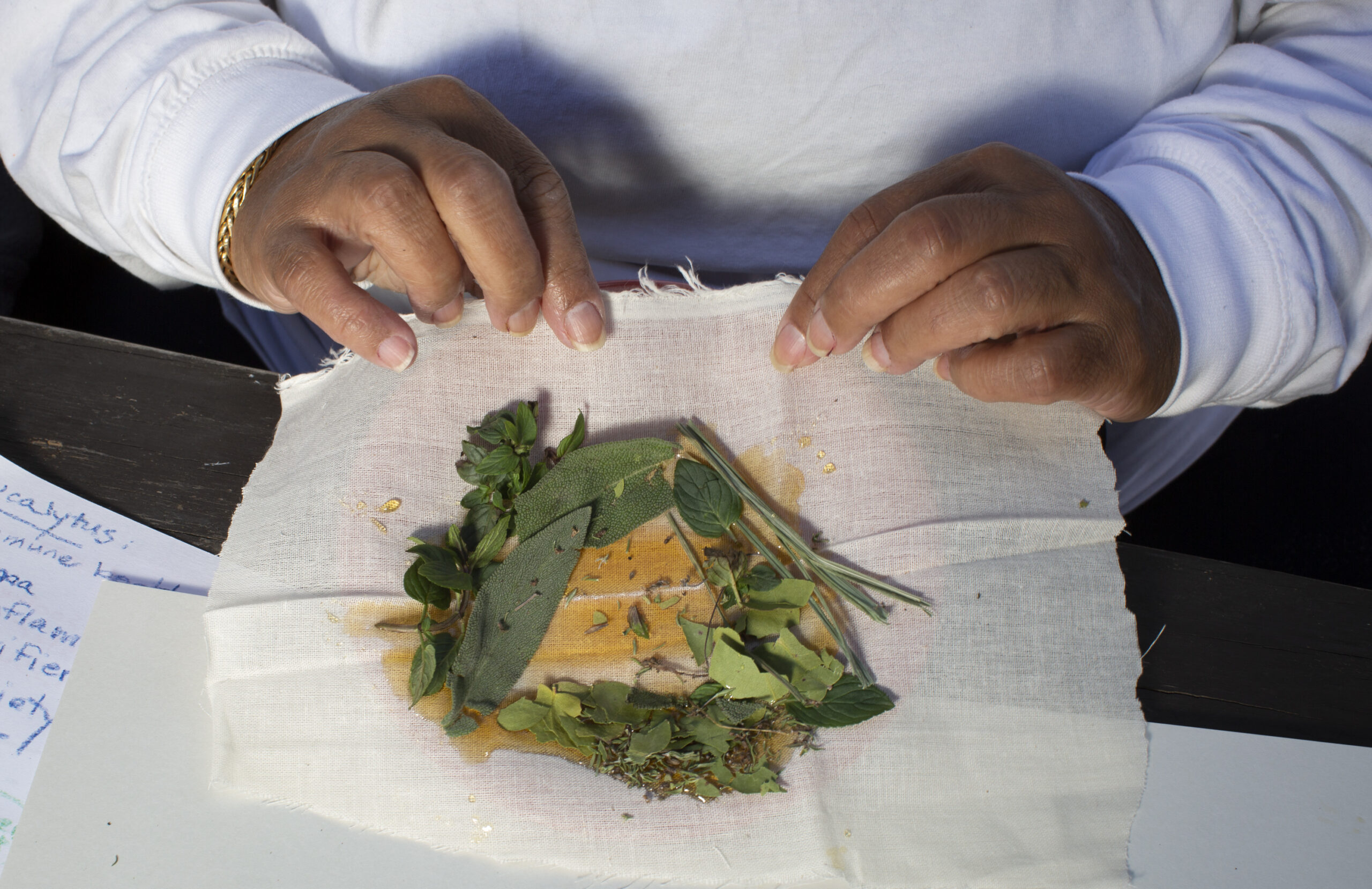
In Brewing Memories, we use only plants that are available at the local farmers’ market. We do this not only to support the farmers’ work, but also because this way we know where the plants are coming from—the region we are in, which reduces carbon footprint—who is harvesting them, and how farmers are growing them (without using pesticides and other chemicals).
Starting in the summer of 2021, we plan to use the plants we are growing ourselves at the Bruckner Mott Haven Garden.
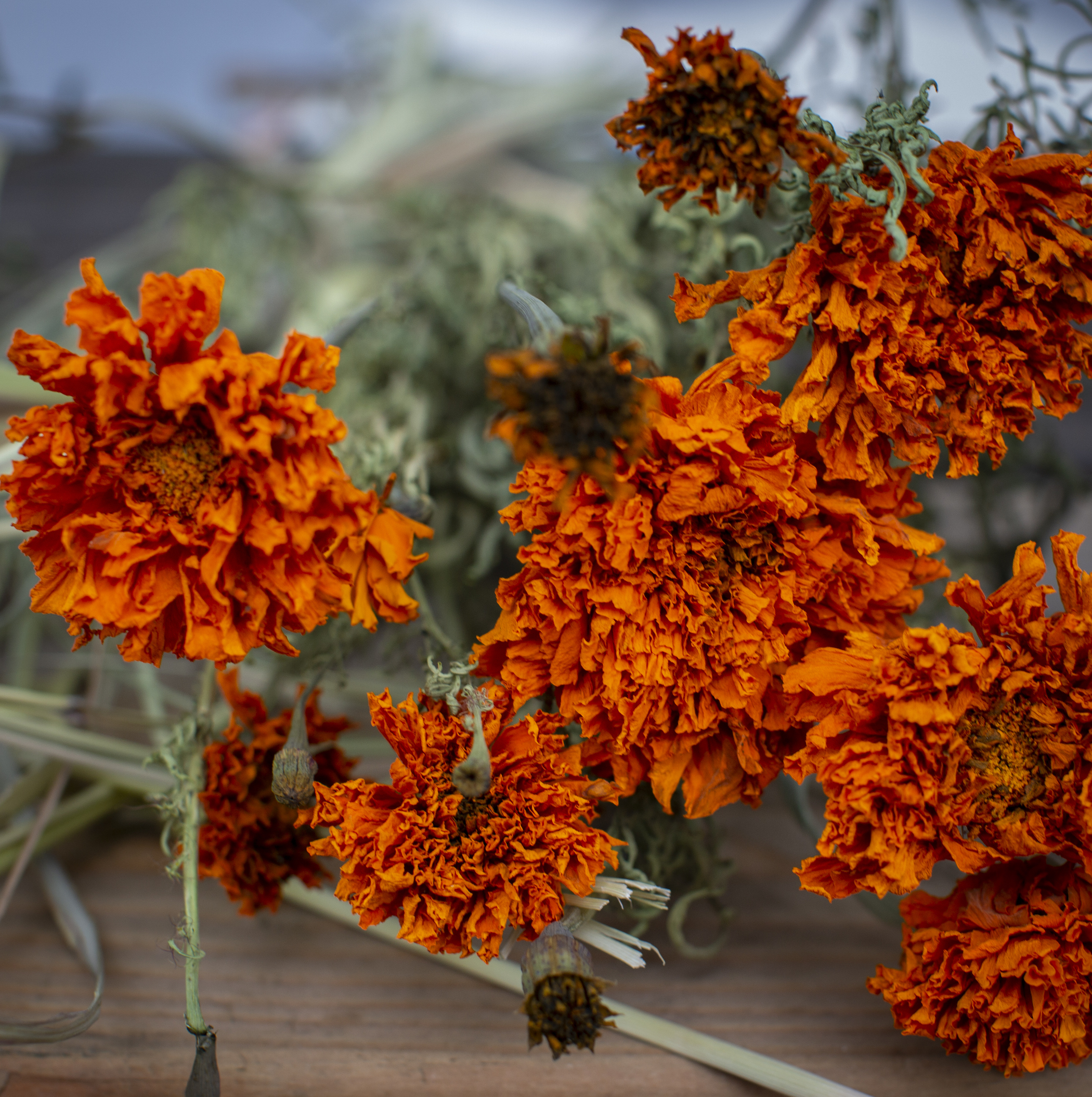
MARIGOLD is very precious and dear because it is native to the Americas. Just by having it close to you, you can benefit from its medicinal properties, just by the smell. If you have a headache, eat a petal. It is also good to heal wounds—it has similar properties to shea butter, so if you don’t have shea butter you can use Marigold. It is good to treat skin marks. It also helps to produce new blood vessels. Marigold can help with toothache. If you have allergies, it can help you to have a less severe allergy reaction.
You can start growing Marigold in the Spring, and harvest it in the Fall. In Winter, you can leave it on the ground because it is a perfect soil cover. Marigold has big and strong root systems. Marigold helps sustain your soil where it is. Marigold is nice to grow near cabbages and tomatoes, because it helps repels the insects that are eating your cabbages and the worms that eat your tomatoes. Whatever your soils mix is, Marigold tolerates any kind of type of soil.
We are living through the times of COVID. We need things that would help our immune system. That’s why we need EUCALYPTUS. Eucalyptus is good for people with asthma, because it opens up your congestions, it opens up your lungs. It is also an anti-inflammatory plant. Now, in times of protests, a lot of us get anxiety. Even with schooling, you don’t know when you are going back to school. Eucalyptus is good with anxiety. Eucalyptus is not only good for your body, but also for the air. You can hang it as it is in your shower, because it is a natural air purifier. This means, it naturally purifies the air and the soil around it. It is a natural fertilizer.
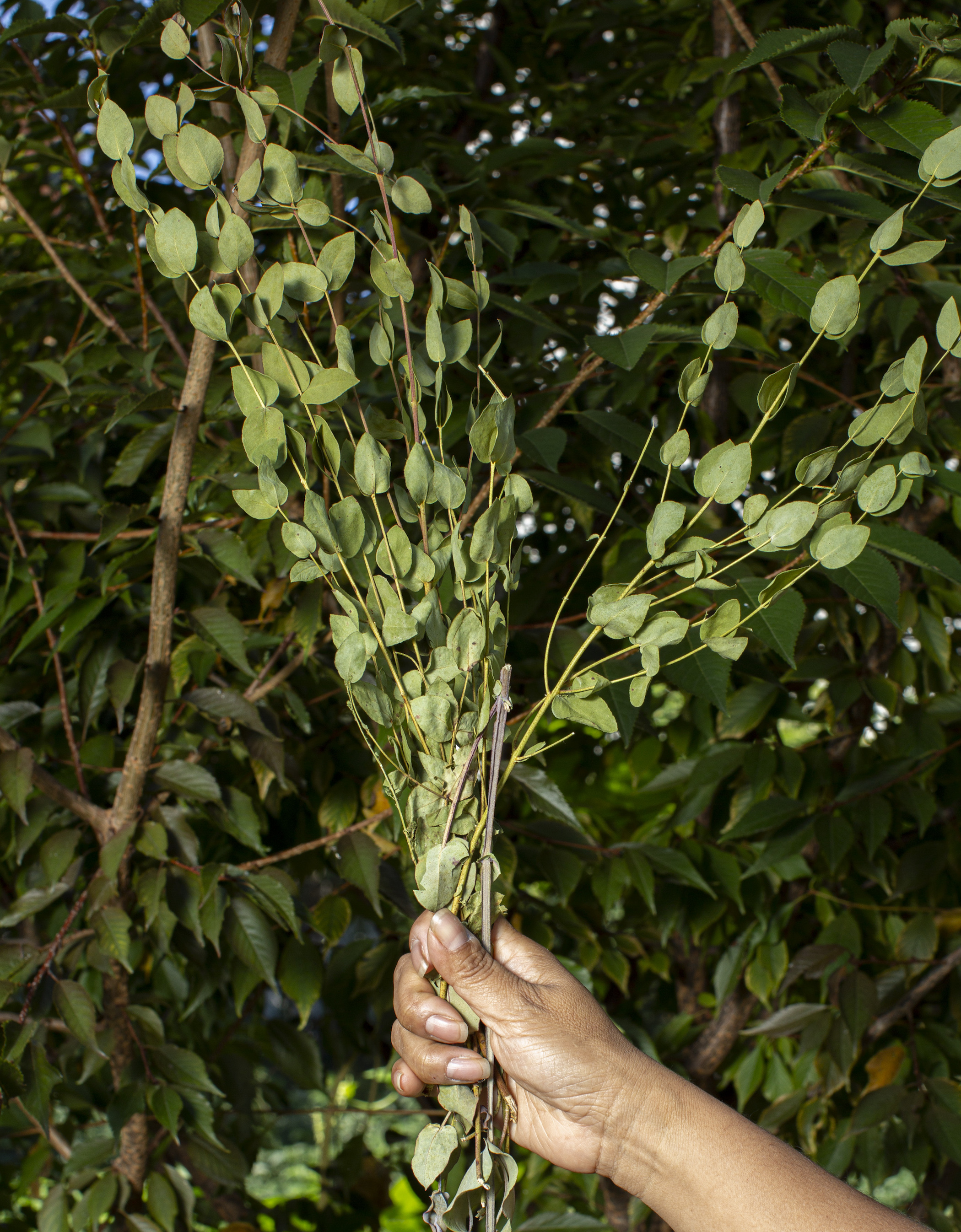
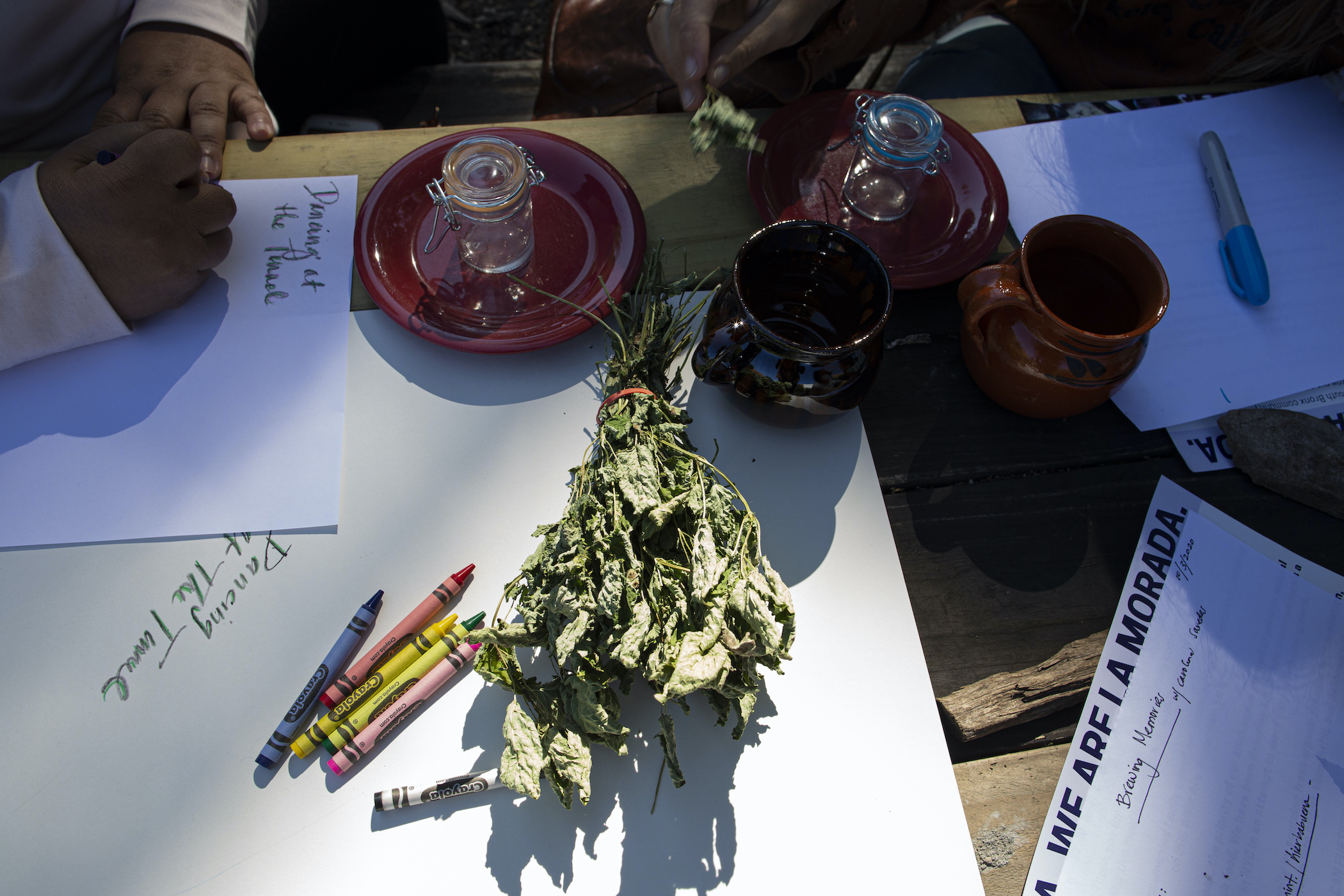
If anyone is breastfeeding, is pregnant or is thinking about getting pregnant, do not go near the SPEARMINT. What spearmint does for us women, it balances our hormones. It is also an antioxidant. If you have arthritis, you don’t need to buy tiger balm or menthol, you can use spearmint. If your stomach hurts, if your kids say their stomach hurts, make them a spearmint tea. If anyone falls and gets hurt. Spearmint is also a natural antibacterial. If you have a test tomorrow, and you can’t remember, make yourself a spearmint because it is a good memory builder. If you see you are losing your memory because there are signs out there, you should start eating a lot of spearmint, because it does help with your memory. We are living during times of COVID, these are times of uncertainty. If you are stressed out because of this, drink spearmint tea; it is also a stress reliever. Spearmint is also good for the soil. What it does, it attracts good insects. Because of its odor, it is also a good repellent. If there are a lot of mice, it is a good repellent, if there are fleas, it is also a good repellent. This is nice because you can grow it in your same bed of whatever it is attracting those things. It is a natural pest repellent.
THYME is not something you would hear about used as tea as frequently, you hear it more as a herb to cook, but what it does help with, is that it lowers your blood pressure. If you have diabetes, this is a good herb to have near you for you. And in times like now, when people see us coughing and they don’t want to get near us, thyme is something that helps you stop coughing. It also helps you if you have a sore throat. It is also an immune system booster. And for those of you who have Pepto-Bismol in your houses, get ready to say goodbye to it: if you have stomach ache because of food poisoning, if you have diarrhea, if you have loss of appetite… Thyme helps you fight all of these things. Thyme is really good with the soil as well, because it attracts our friends the pollinators and repels the pests that attack brassicas (the family of cauliflower, broccoli, cabbage, etc.). If you are gardening and you see a lot of holes in your cabbages, just grow some thyme near them; Thyme will repel those pests. This also applies to tomato plants. Thyme is a good companion plant, so you won’t need to worry about the nutrients of your soil.
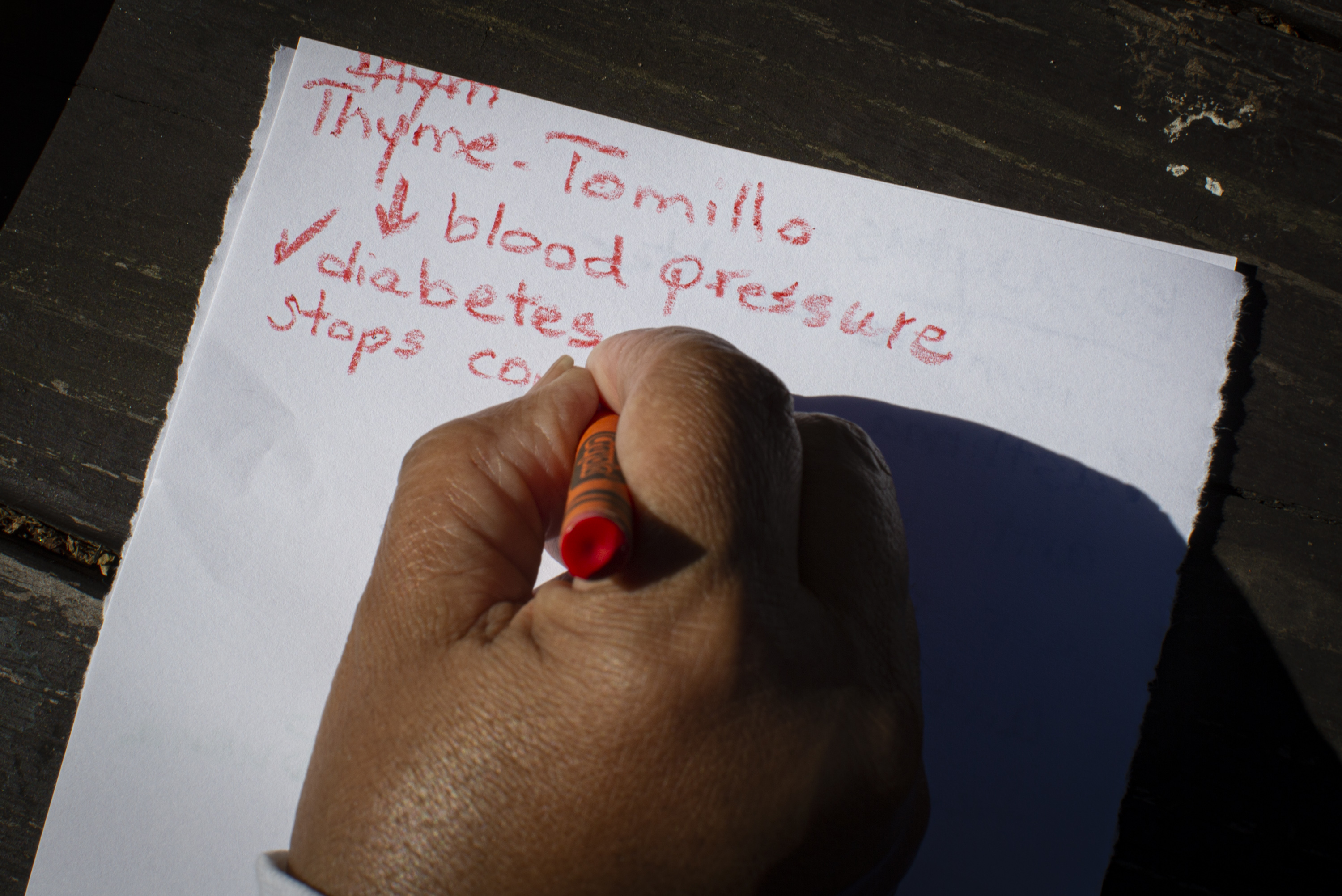
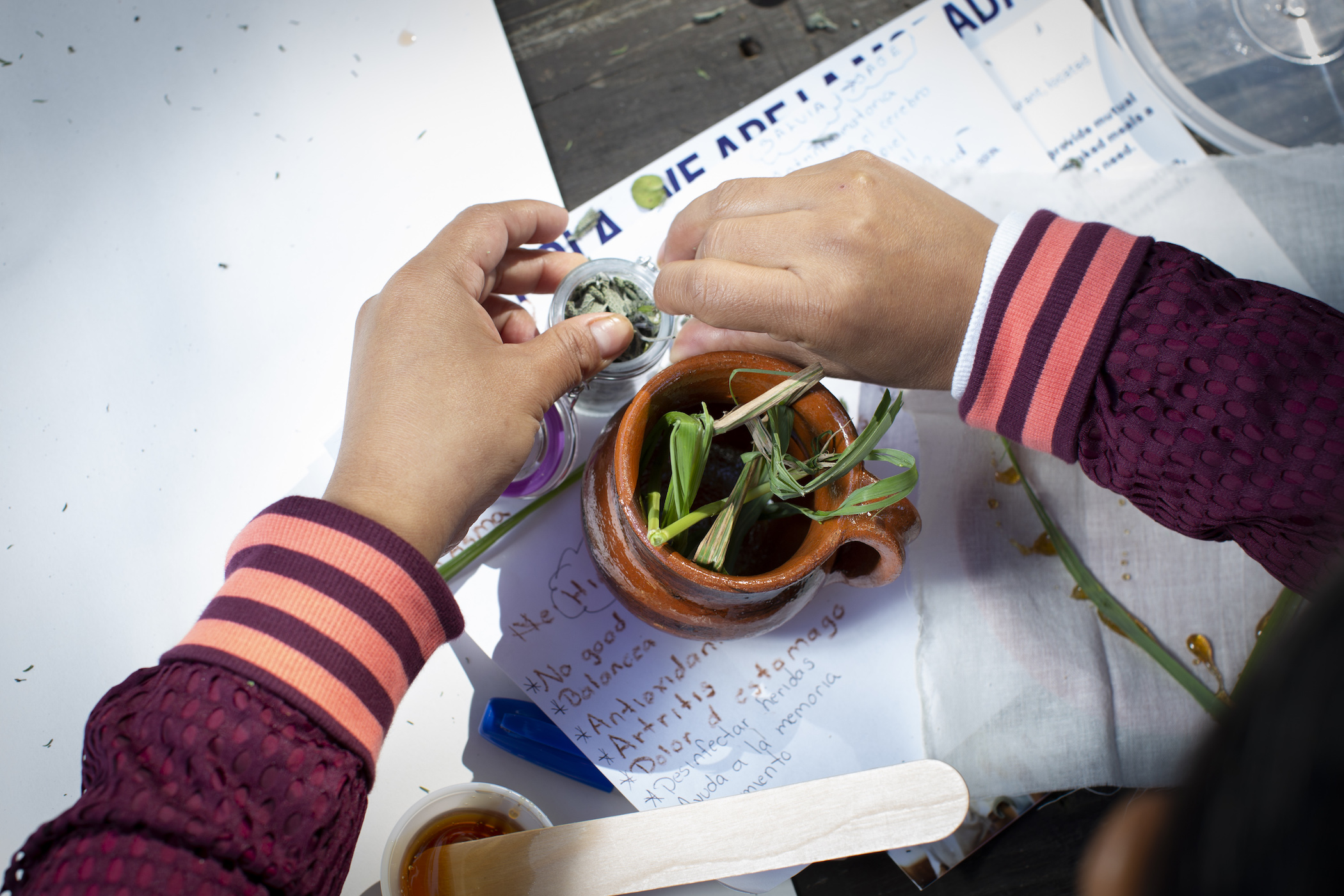
LEMONGRASS is a natural fever reducer. It also has antimicrobial and anti-inflammatory properties. It is also good for having a healthy gut. It you have cholesterol, if you consume fats and high fructose corn syrup, this is a good. It will help to lower your cholesterol.
Everything the Midol does when we have our menstrual cycle, Lemongrass does too. If your stomach hurts, because you feel too bloated, if you have a headache, if your back hurts, just drink a Lemongrass tea. Also… they say you need to get things out of your system quick; let’s say you when out to drink, drink a lemongrass tea because it makes you pee more quickly. That way your system gets clean, it is a plus.
For the soil, what the Lemongrass does, it is a nitrogen fixer. Tomatoes like to take all the Nitrogen from your soil, so a good crop to go after your tomatoes, it’s Lemongrass. The other benefit of growing with Lemongrass is that it has a deep root system; just as the Lemongrass is nice and tall, it is the same in the opposite direction; you want this, because you want to have more air flow, more circulation going in in your soil. In places like the city where we have a lot of compact soil, this is a good fighter against it. Lemongrass is also a natural fertilizer, so if you plant it and you don’t consume it all, it is still good because it fertilizes your soil.
SAGE is also an anti-inflammatory. Sage is also good for our memory. Sage helps build the cells that you need for memory in your brain; for the people who care about their skin, keep it moisturized, sage does that for you. Sage also has anti-microbial properties; again, get ready to say goodbye to your Pepto-Bismol bottle, because Sages does almost everything Pepto-Bismol does. And in times like the ones we are living right now, when there is a lot of anxiety, Sage is a good anxiety reducer.
Sage is also a good companion plant. This means that if you grow Sage, it doesn’t have to be the only thing you grow, you can grow other things around it. Because of its scent, bugs don’t like it—Sage is a natural bug repellent. Sage also helps with the brassica family (the cauliflower family). If you see holes in your plants, you want to use Sage.
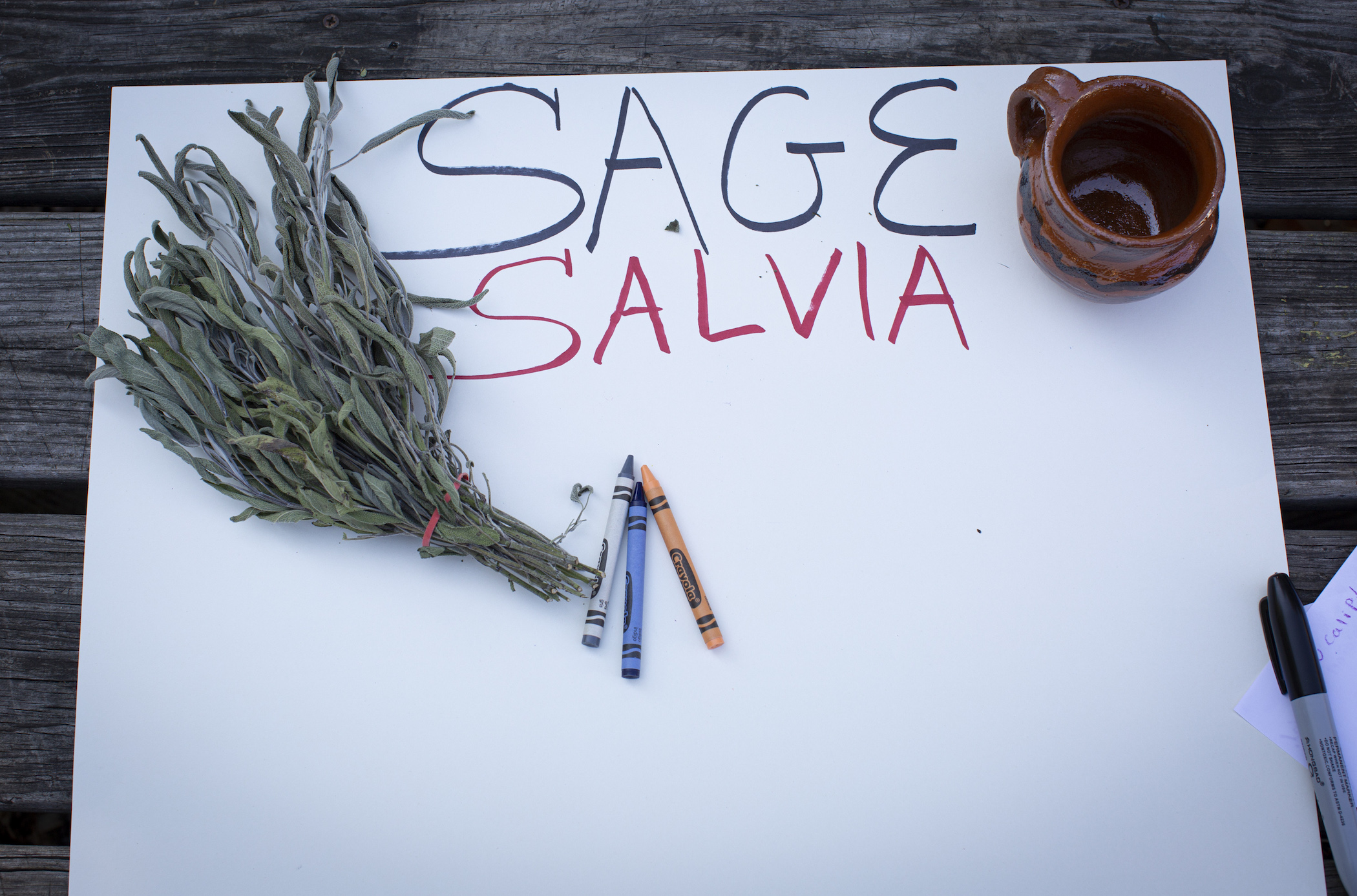
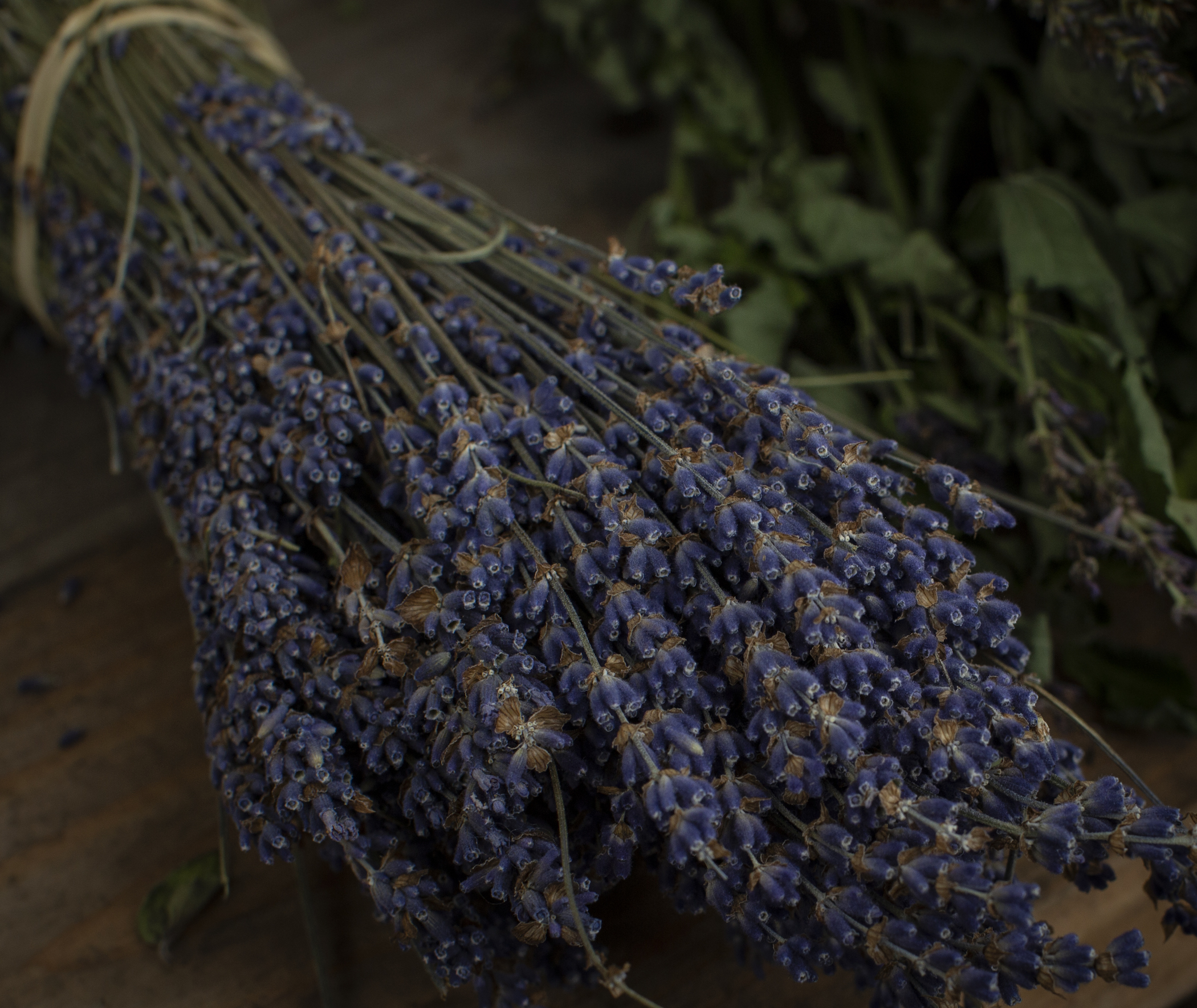
We might be feeling a lot of anxiety, be worrisome because we don’t know what’s coming next, what’s going to happen; LAVENDER its good for all of this, it can help you lower your anxiety. If you are feeling anxious, just smell some and it will help to calm you down. The same goes for stress and for migraines.
Lavender also has anti-inflammatory properties. So, if we were walking for too long because we were protesting and our feet are swollen, you could either drink your Lavender or soak your feet in it. But it doesn’t have to be only your feet, it can be any part of your body. Also, Lavender is a natural sedative.
Just as it is good for our body and immune system, Lavender is also good for the soil. Lavender attracts a lot of pollinators—bees, ladybugs, butterflies—all the insects we want in our garden. It also repels things you don’t want in your garden: deers, squirrels. These animals they don’t like Lavender’s smell. Lavender is also a companion plant. It doesn’t have to be the only thing in your bed, you can plant it with other things. Lavender is also perennial—it is ever lasting.
